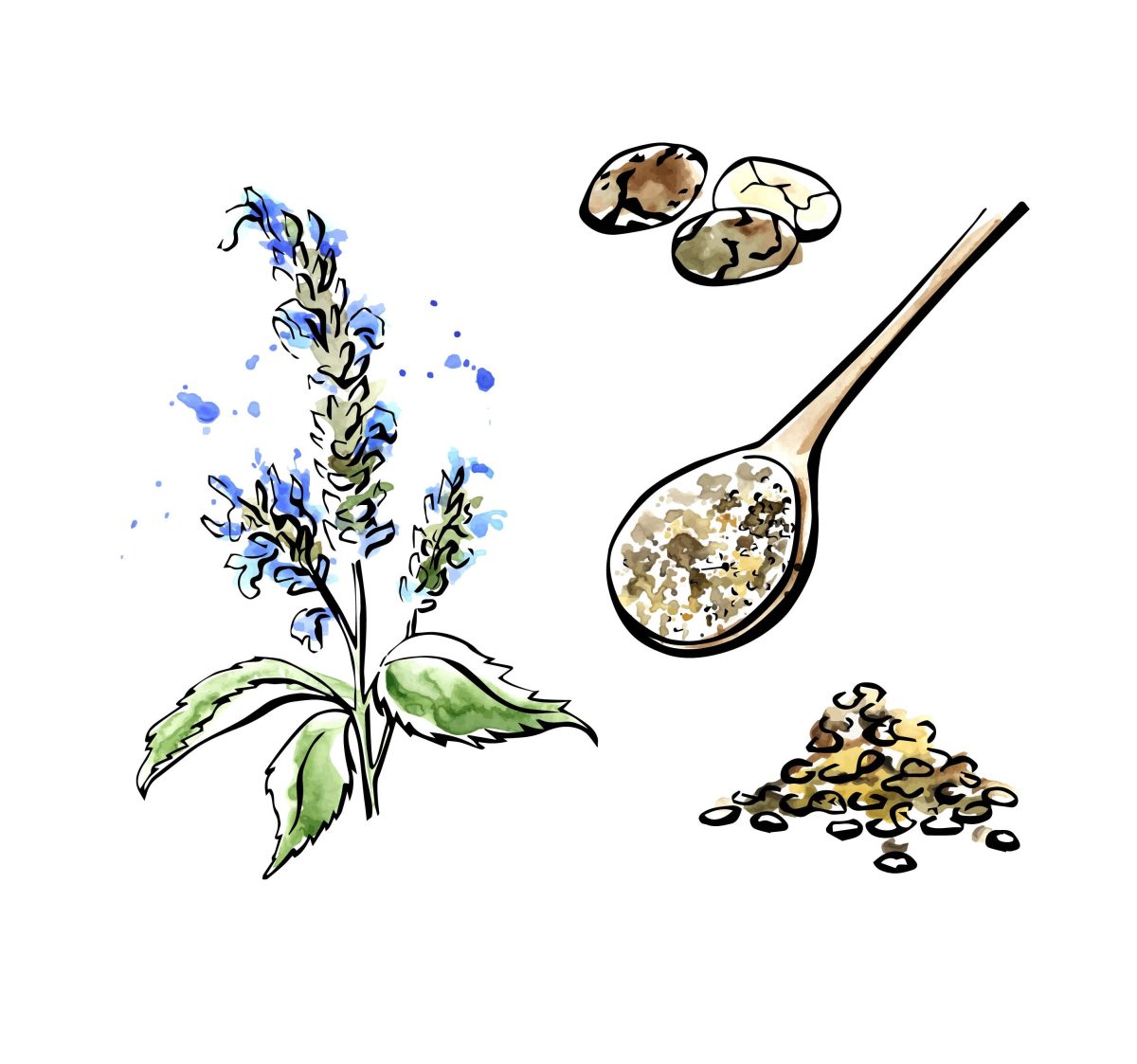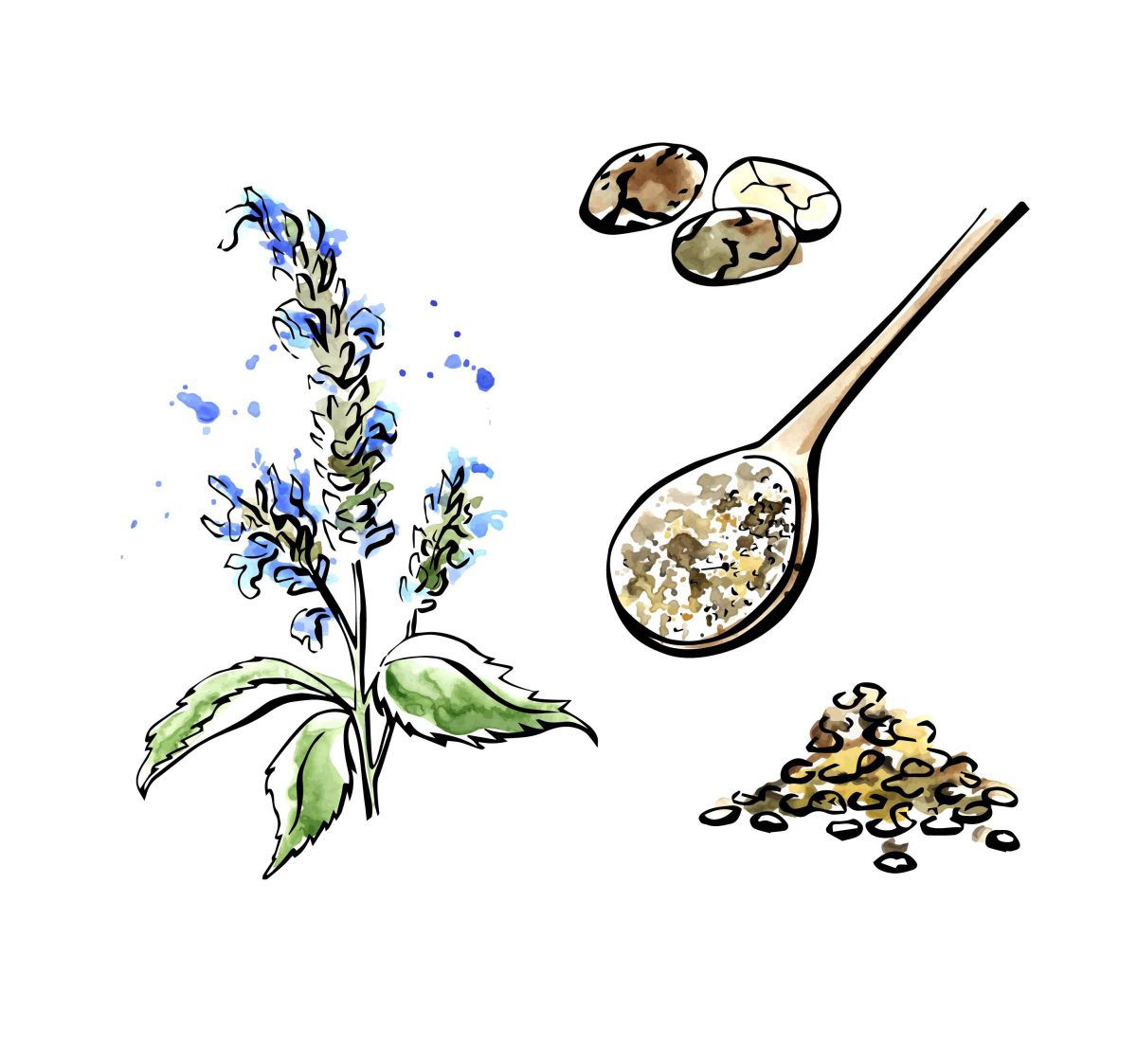 7 Enticing Health Benefits of Chia Seeds
7 Enticing Health Benefits of Chia Seeds

Chia seeds are amazing little seed that have become increasingly popular, and with just cause. Chia is packed with several different benefits that make them a wonderful addition to anyone’s diet. This tiny seed has been known for its powerful benefits since the Aztec and Mayan civilizations, as it was a major staple in both cultures’ diets. They are full of nutrients like omega-3 fatty acids, fiber and antioxidants and promote health in a plethora of bodily functions. But sometimes when trying something new, it can be difficult incorporating a new component into your daily diet. This is what’s great about chia seeds. They are so versatile and basically tasteless, so you can easily prepare them and sneak them into several different dishes and snacks. One of the easiest ways is to add it to liquid, let it turn into a gel consistency, and eat it as a chia pudding. If you are ready to learn just how amazing this superfood is, check out these 7 enticing health benefits of chia seeds.

Chia is very nutritious
Chia seeds can be white or black seeds that actually come from a larger plant called Salvia hispanica L. Sources say that chia is thought to be native to Central America. They have been used by ancient civilizations for many purposes including for food, medicinal benefits, spiritual practices, and the creation of cosmetic products. One of the reasons that people consume chia today is because it is packed with nutrients like protein, health fat, fiber, calcium, magnesium, zinc, iron, phosphorus, calcium, and Vitamins B1 and B3.

These seeds have tons of antioxidants
One of the most powerful benefits of chia seed is its high content of antioxidants. Antioxidants are so important for long-term health, as they protect the body from free radicals. Free radicals can build up over time and can wreak havoc on the body, by damaging cells, speeding up aging, and contributing to diseases like cancer. Chia seeds contain antioxidants like caffeic acid, quercetin, kaempferol, and myricetin. These are all beneficial in protecting against cancer and damage to the heart and liver.

Chia may help you lose weight
Chia seed is also a weight loss aid because of its high protein and fiber content. Just one ounce, or 28 grams, of chia contains 10 grams of fiber — which represents 35% of its total weight composition. The protein in chia can also make you feel full faster and feel satiated for longer. One study revealed that a control group of overweight people with type 2 diabetes lost more weight while consuming chia on a daily basis.

It could help reduce your risk of heart disease
Chia is high in omega-3s as well as fiber, which are both elemental in maintaining a healthy heart. Chia specifically contains soluble fiber, which can help to reduce total cholesterol and LDL, or bad, cholesterol. This in turn helps to reduce the risk of heart disease. ALA is the type of omega-3 found in Chia, which has also been seen to reduce the risk of heart disease.

Chia has nutrients your bones need
Chia is full of calcium, phosphorus, and magnesium. These are all nutrients that your bones need to stay healthy by increasing bone mineral density. Animal studies found that after 13 months of consuming chia daily, bone mineral content was significantly increased. The omega-3 fatty acid ALA in chia is also a beneficial nutrient to bone health.

Chia may help regulate blood sugar levels
The high fiber content in chia is one of the factors that have been seen to help lower blood sugar levels. People with diabetes specifically can experience higher levels of blood sugar. And this higher blood sugar level is associated with more complications like heart disease. In animal studies, chia was seen to possibly improve sensitivity to insulin, which can help stabilize blood sugar after consuming a meal.

Chia can easily be incorporated into your diet
Many times, healthy foods can be a pain to incorporate into your diet. Finding out how to make new meals can be difficult, especially if you aren’t necessarily the most enthusiastic cook. Chia can be added to water, milk or other liquids to turn it into a gel-like consistency. This can be used as an egg replacement in baking and other recipes, and can be added to yogurt or as a pudding by itself.
Related posts
- 8 Beauty Trends That’ll Be Everywhere in 2022 - Beauty , Beauty , color , Curtain Bang
- Smartphone a Fashion Statement - Style & Fashion , Fashion , Fashion Statement , Smartphone
- 8 DIYs Every Woman Should Know How To Do - Home & Garden , DIY
- 7 Ways to Feel More Positive About Monday - Health , happiness , happy , life routine
- 8 Hollywood Femme Fatales Who Take the Archetype To Another Level - Entertainment , cinema , femme fatales , movies
Latest posts
- Decluttering Before Deep Cleaning: A Comprehensive Guide - Home & Garden , Decluttering , home
- The Graceful Shift: Embracing 12 Transformative Changes After 50 - Beauty , health , mental health , psychology
- The Exit Strategy: Financial Steps to Reclaim Your Life from a Toxic Marriage - Lifestyle , mental health , Relationship , Toxic Marriage
- 10 Fun and Fulfilling Hobbies That Cost Next to Nothing - Lifestyle , hobby , mental health
- 12 Reasons Men Walk Away from Relationships—And What They Really Mean - Relationship , psychology , Relationship
- What Plus-Size Women Secretly Wish Their Partners Knew About Dating Them - Relationship , plus size , plus-size women , Relationship
- The Duchess We Adore: 10 Reasons Kate Middleton Continues to Inspire - Entertainment , Kate Middleton
- Cute vs. Hot: Decoding Male Appeal - Relationship , cute guy , hot guy , psychology
- 12 Things A Woman First Notices In a Man - Relationship , psychology , Relationship
- The Impact of Long-term Singlehood: 6 Positive and 6 Negative Effects - Lifestyle , mental health , psychology , Singlehood